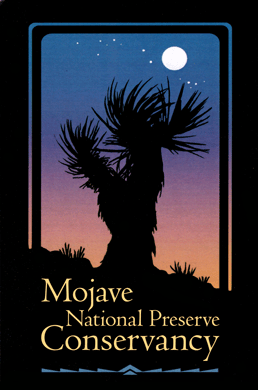The Secretary of Interior recently discussed the administration's proposal to slash the National Park Service (NPS) budget by 13% and his plans to expand privatization of our national parks. Keep in mind that our national parks are already experiencing an 11 billion dollar maintenance backlog as a result of Congressional inaction. These budget proposal, privatization plans and the maintenance backlog signal political disrespect for American treasures that are wildly popular. The Mojave National Preserve is one of many amazing places that will suffer.
Budget Cuts Would Imperil All Parks, Including the Mojave National Preserve
The President's proposal to cut the NPS budget by 13%, if enacted by Congress, would be the largest cut to the agency since World War II. Keep in mind that national park funding only represents 1/15th of one percent of our national budget. So we are talking about a fraction of a drop in the bucket in terms of overall government operating costs.
Despite the relatively insignificant costs associated with protecting our beloved national parks, Congress has already neglected to properly fund them. Road maintainenance, building upkeep, and water and sanitation systems require more funding from Congress. A deeper budget cut could hurt other critical functions managed by the NPS. Think about the research NPS does to better understand and protect wildlife, building or maintaining trails, restoring wildlife habitat, maintaining or restoring interpretive signs to educate visitors, and hiring law enforcement to protect visitors and natural treasures.
The maintenance backlog at the Mojave National Preserve is already significant. According to a 2016 report by NPS, the Preserve as of last year experienced a 2.6 million dollar backlog for building maintenance, nearly 406,000 dollars for water systems, and over 100 million dollars for road maintenance and repair.
Cima Road in the Mojave National Preserve. Photo by Michael Gordon
Although road maintenance backlog plagues many national parks due to neglect by Congress, the nearly 100 million dollar road maintenance backlog in the Preserve stems from years of neglect by both Congress and San Bernardino County. Until a few years ago, San Bernardino County laid claim to the roads but did little to maintain them for decades. A court settlement in 2012 resulted in NPS taking responsibility of the roads. The Preserve began to put a dent in this backlog when in 2015 it issued a contract for private a private firm to repave Kelso-Cima, Morningstar Mine, and portions of Ivanpah Roads using money that Congress budgeted for Federal highway repair. But plenty of work remains to be done at the Preserve.
Is Privatization the Answer?
The national parks already hire private industry to fills roles in the parks when it makes sense. Nearly all lodges and food concessions are run by private companies, for example. Private companies do most of the road repair and maintenance. Secretary Zinke, however, thinks that private companies can also manage and maintain campgrounds and other services to make it cheaper to run NPS. Companies like Aramark and Delaware North Inc are lobbying hard for expanded privatization of our national parks.
But privatization does not always represent the cheapest or most efficient option to off-load responsibility in our national park system. Consider that private businesses have neglected to staff the Kelso Depot lunch counter - known as "The Beanery" - in the Mojave National Preserve since the last concessioner left in 2013. Don't get us wrong. It makes sense for private businesses to fill some roles - and the last operator of The Beanery did a wonderful job and served amazing meals with fresh ingredients. The perfect stop to make after a strenuous hike in the Preserve.
But operating a food service - or any company - in the middle of the Mojave poses logistical challenges and costs. If it is this hard to get a business to serve food in the Mojave, who will want to drive all the way out there to maintain campgrounds? Many private businesses will not agree to accept those costs unless they are guaranteed a healthy profit. Which means privatizing our campgrounds and other park services in remote places like the Preserve may not always be the cheapest option. In order to attract, train and pay private businesses to run a campground over 100 miles from the nearest city, the NPS could end up spending more than it would cost to just get the job done with NPS employees.
Also, Secretary Zinke's proposal to hand over fee collection and campground management to private firms could further reduce NPS funding. Campground and entrance fee revenue currently collected by NPS is used to fund not only maintenance and programs at the parks that collect the fees, but 20% of the collected fees are pooled and available to all parks for special projects. So a portion of fees collected at heavily-visited parks such as Joshua Tree or Arches may be used to enhance the Mojave National Preserve, for example. Privatization, in effect, could further reduce resources available to the parks.
Volunteers and NPS personnel remove invasive tamarisk at Soda Dry Lake in the Preserve. The tamarisk can have a harmful impact on groundwater that feeds natural desert springs. Habitat restoration is just one of many functions that could take a hit with budget cuts. Photo by Michael Gordon
Congress Should Properly Fund NPS
The administration's proposal to privatize more national park services while slashing the overall budget seems to overemphasize potential savings (remember, NPS accounts for a fraction of one percent of the national budget), and probably overestimate's the private sector's potential to significantly cut NPS costs. Our national parks generate the memories many Americans cherish, the experiences we want future generations to share, and the family vacation photos many of us would pick up on the way out of a burning home. But saving our national parks doesn't require that much of a sacrifice. It is not asking Congress and the Trump Administration for much to just properly fund our national parks.



